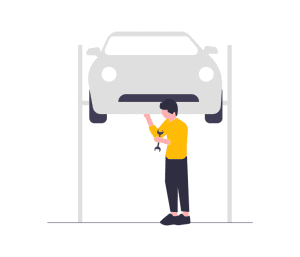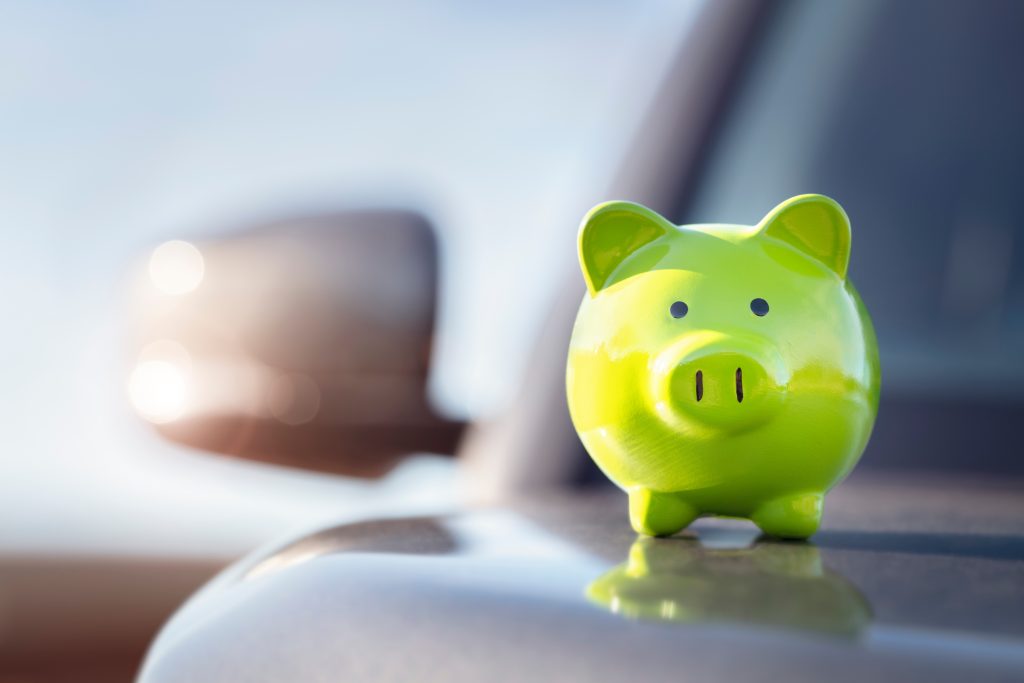When it comes to owning a car, there are many running costs associated with driving. One of the biggest for many drivers, aside from the cost of insurance payments, is how much we spend on refuelling or recharging our cars. The cost of petrol and diesel can fluctuate at any point and as drivers, we know how inconvenient this can be to our pockets. Whilst we can’t control the cost of fuel or rising electricity costs, there are a few tips on how to save fuel and also get the most out of your EV. The guide below looks at how to save fuel when driving and if you’re an electric car driver, how to extend your electric car’s range.
⛽️ How to save money on fuel:
Some cars guzzle more fuel than others and depending on your driving style and how often you drive, you may be using more fuel than you need to. There are a few factors you can consider before you hit the road to help save fuel when driving and get the most out of your vehicle.
1. Check your tyre pressure.
As a driver, you should get into the habit of checking your tyre pressure regularly. The lower the tyre pressure, the more fuel you will use to move the car. To find out what your tyre pressure should be, you can find it in your owner’s manual, vehicle handbook, inside the driver’s side door or on the inside of the fuel tank flap. You can then take your vehicle to any supermarket, garage, petrol station or car service centre that has a tyre air pump you can use. Simply take off the valve caps, fit the gauge to the valve and inflate or deflate the vehicle to the recommended PSI.

2. Ditch the weight.
Many of us are guilty of using our vehicles as a place to store stuff when in reality, the more weight your car is carrying, the more fuel you will use. A heavier vehicle will need to use more fuel and a quick 5-minute tidy of your car can save you money on fuel costs! Think about clearing out your boot space, removing any roof racks and getting rid of any unnecessary items you don’t need to keep in your car.
Find a fuel efficient car
Are fuel costs getting you down? Check out our top 10 fuel-efficient cars to finance NOW.
3. Stick to the speed limit.
Drivers should never be exceeding the speed limit anyway but it can be tempting to drive faster to shed some time off your journey. However, the faster you drive, the more fuel you use and it cans seriously add up over your journies. You should also get into the habit of driving more smoothly to help cut running costs. When you slam your brakes on to slow down or hit the accelerator aggressively to pull, you put a lot of pressure on your vehicle and use more fuel than you need to.
4. Keep your vehicle well maintained.

Whilst having your car serviced is not a legal requirement in the UK, it is highly recommended! A service should be carried out on your vehicle every year or at every 12,000 miles you drive, whichever comes first. Regular servicing of your vehicle can help to increase its fuel efficiency and reduce your fuel consumption. A car service tends to check things like engine oil levels, filters, and spark plugs and make changes accordingly, helping to get the most out of your vehicle. There are also many easy car maintenance checks you can do yourself, such as checking oil and filter levels.
5. Use air-con only when you really need it.
Air-conditioning is a life-saver on a hot day and it now comes in all cars as standard. In the UK, the weather can be very unpredictable and we probably don’t use air conditioning to its full potential when compared with other countries, but that’s probably a good thing. Air-con uses a lot of fuel and it’s more economical to save your air-con for when you really need it. If you’re travelling at low speed, it can be better to roll down your windows instead. Once you reach higher speeds, you should lose your windows as it can increase drag and then use air-con if you need to.
⚡️ How to extend the electric range of your EV:
Electric cars don’t use fuel and instead rely on power from an electric battery. Electric batteries need to be recharged once they’re low but you may feel like you’re recharging all the time when you own an electric car. So, how can you extend the electric range and get more from each recharge?
1. Choose a bigger battery.
When you’re buying an electric car, manufacturers offer a few battery sizes to choose from. Basically, the bigger the battery size, the longer the electric range. Usually, the larger battery will cost more to buy but it could be saving you money in the long run. If you tend to use your EV for short trips or city driving then you may not need t invest in a larger battery but it can be beneficial for longer journies and motorway driving.
2. Time your recharging wisely.
When you own an electric car, the manufacturer guide will give you advice on how to charge your EV correctly and it’s really important to the battery life. Best practice recommends that you only charge your EV to around 80% instead of 100% as it can be quicker and uses less electricity If you leave your car overnight to charge to 100%, the battery usually disconnects itself if you don’t do it first and if left idle, it can affect the batteries performance.

3. Make the most of regenerative braking.
Regenerative braking is a concept used within electric and hybrid vehicles which allows you to generate energy back into the battery when you press the brake pedal or lift off the accelerator. Whilst it can only produce a small amount of energy, doing this often can help to rack up miles to your electric range when you’re out on the road.
4. Plan your route.
No matter which fuel type you choose for your next car, it would help always to plan your journey before you leave to help increase efficiency. It can help save time and money by checking the traffic updates before you set off to find the fastest route to your destination. Range anxiety is a common worry for EV drivers and is used to describe the worry that they won’t reach their destination before the vehicle will need recharging so it can help to take note of your battery levels and mileage before you set off.
5. Reduce your energy usage.
Using key features within your EV will be powered by the electric battery so it’s worth keeping in mind. Just like a fuel-powered vehicle, using your air-con to your heart’s content, will drain the battery and reduce your range. Other features such as automatic lights, using your infotainment screen and blasting your heating can all put more pressure on your battery.

